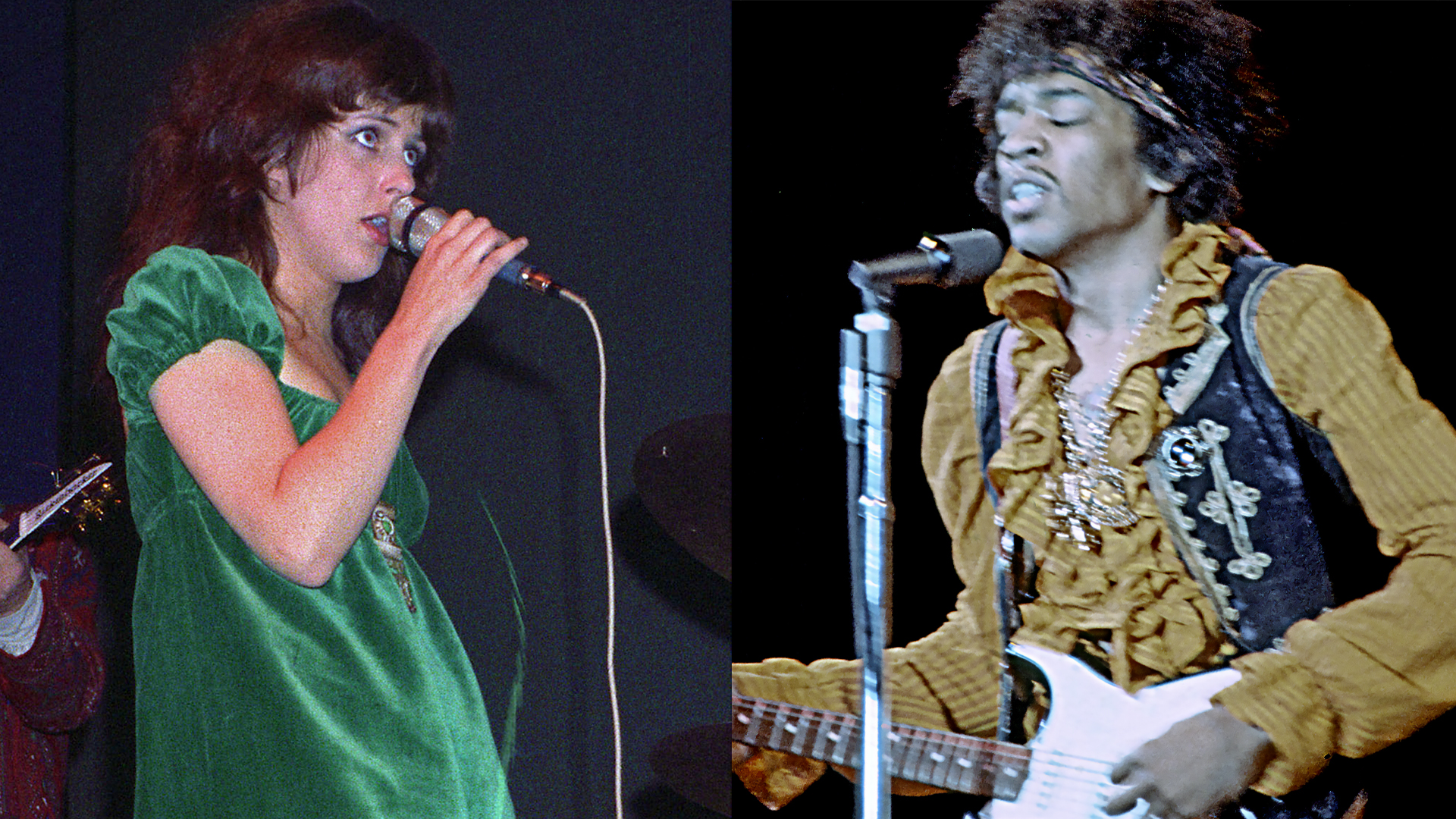"Everyone who listened to them went out and started a band of their own." The new MC5 album took more than 50 years to arrive. Guitarist Wayne Kramer and his bandmates have passed on, but the celebration is just beginning
Kramer was assisted by Vernon Reid, Tom Morello and Slash in making the group's final album
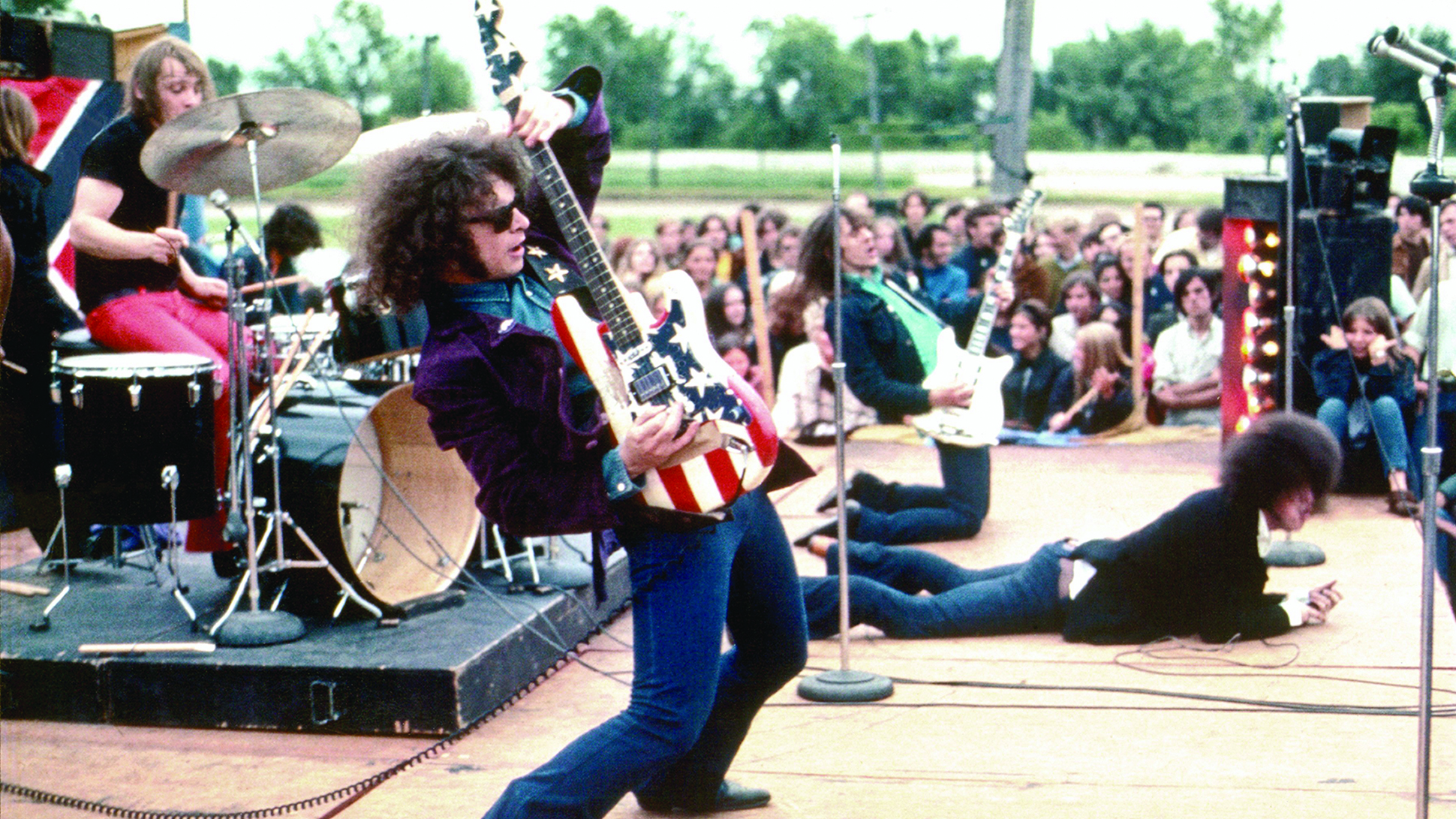
On stage at El Club, a respectably divey club in his hometown of Detroit, for a Cinco de Mayo show in 2022, Wayne Kramer was preparing to play something more than 50 years in the making — a new MC5 song.
“Some bands take two years between albums,” Kramer told a packed house at what was, in fact, the first show by a new MC5 lineup. “Some bands take five years between albums. We take 50.” He then cranked up his famed American flag–painted Stratocaster to play the metallic riff that introduces “Heavy Lifting,” the title track from what is the first MC5 album since 1971’s High Time. It’s a 13-track set that fits the band’s legacy well. From its boldly topical lyricism to an electric guitar assault led by Kramer — with guest appearances from Tom Morello, Slash, Vernon Reid, Rise Against’s Tim McIlrath, Steve Salas and Soundgarden’s Kim Thayil — Heavy Lifting is a true testimonial to the original troupe’s jam-kicking power.
But much has changed in the two-and-a-half-year interim since that show. Kramer passed away from pancreatic cancer on February 2, in Los Angeles, at the age of 75. Two months later to the day, John Sinclair, MC5’s manager and mentor, also died. With MC5’s three other members — Rob Tyner, Fred “Sonic” Smith and Michael Davis — gone years before, that left drummer Dennis “Machine Gun” Thompson as the band’s only living member, and he died on May 9, also aged 75, after suffering a debilitating heart attack the month before.
Sadly, his death came less than three weeks after the announcement that MC5 would receive an Award for Musical Achievement from the Rock and Roll Hall of Fame after six previous unsuccessful nominations.
If all that places a bit of a pall over the arrival of Heavy Lifting, however, those involved with finishing it are sworn to make sure the record’s release is a celebration, not a wake.
“The tragedy of all this,” Heavy Lifting producer Bob Ezrin says, “is that, because it took so long to get through all of the things on the business side, we missed being able to release it in Wayne’s lifetime. It’s also tragic that we missed having him be able to take it on the road. He was so looking forward to that, ’cause all the stuff was really fun to play, even in the studio. I’m still saddened by the fact that he died before he had a chance to see what people think about this and have the joy of doing it in front of an audience.”
For Brad Brooks, who co-wrote 10 of Heavy Lifting’s tracks and is the album’s primary singer, its release “is really super bittersweet, ’cause Wayne is not here. He and I had been talking so much about this coming year, and he was so excited. Losing Wayne’s a big hole in my life. It’s been very, very hard. But I’m so excited the album is coming out, and I’m pretty proud of what we did.
“The tragedy of all this is that we missed being able to release it in Wayne’s lifetime. It’s also tragic that we missed having him take it on the road. He was so looking forward to that."
— Bob Ezrin
“But it also makes me sad because he should be here. It also kind of pisses me off. He should’ve been here way longer.”
The same, of course, could be said about the Motor City 5. Although Heavy Lifting is billed under the band’s name, the quintet’s original run lasted from 1963 to ’72, and they were a recording act for only four of those years. The MC5 formed in the blue-collar Detroit suburb of Lincoln Park, inspired by early rock and roll, Motown and James Brown, though later they picked up on John Coltrane, Sun Ra and other free-jazz improvisational influences. Their debut album — recorded live in concert during a Halloween weekend stand at Detroit’s Grande Ballroom — was named for the proto-punk anthem and statement of intent “Kick Out the Jams,” but the same performance concluded with the eight-minute-plus “Starship,” a screaming freak-out co-credited to Sun Ra.
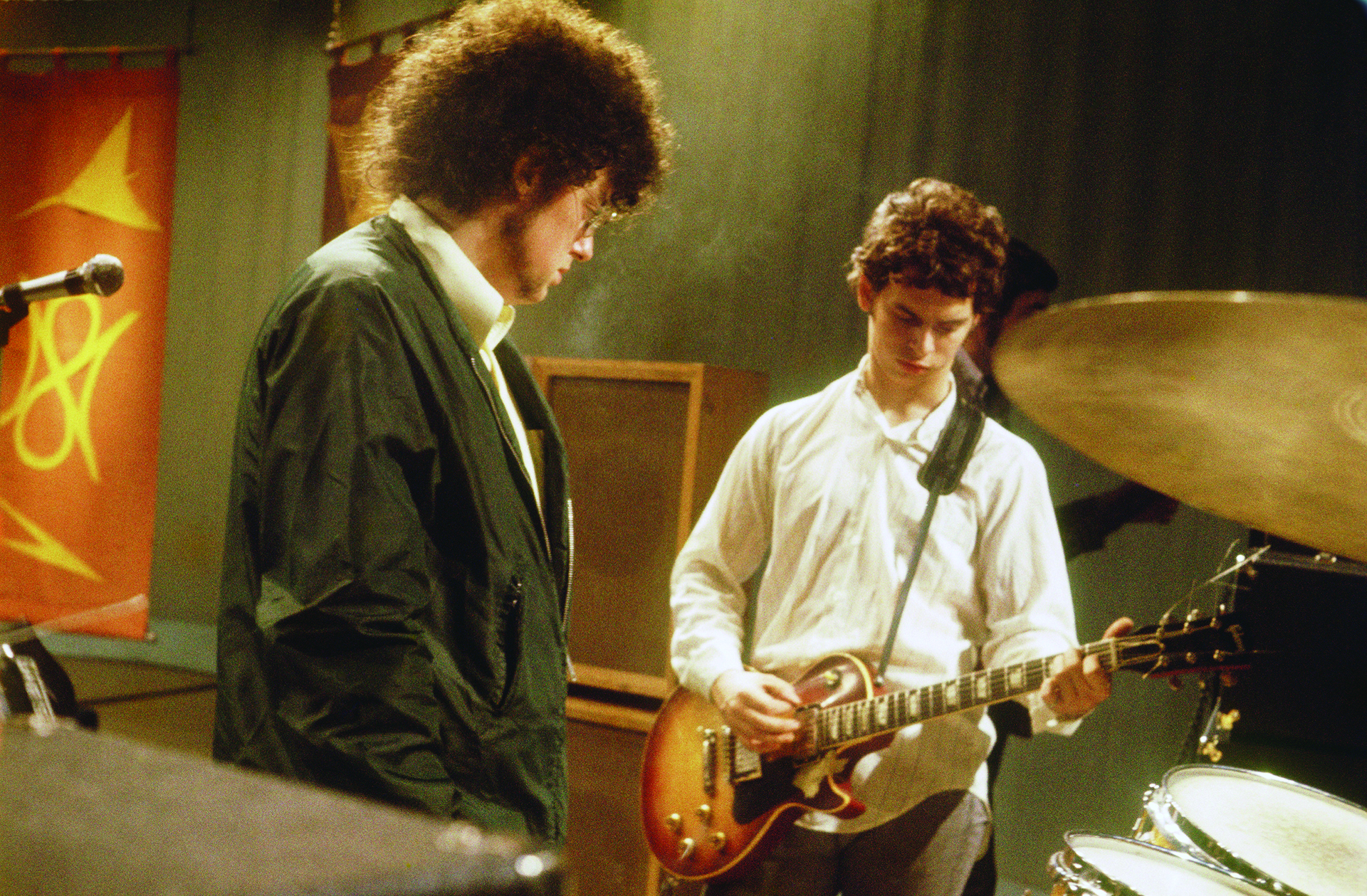
“I think the band represented a sense of unlimited possibilities — that there could be a new kind of music and a new kind of politics, that there could be a new kind of lifestyle,” Kramer said in 2018 while celebrating the 50th anniversary of the Kick Out the Jams concerts. He would go on to recount the band’s saga in the Heavy Lifting track “The Edge of a Switchblade.” “Like any generation, we saw a seismic shift in the way we approached life. I think that spirit that anything is possible held up pretty well.”
“I believe the impact of the MC5 on all the subsequent rock and roll cannot be overstated,” says Don Was, the Grammy Award–winning producer who plays bass on most of Heavy Lifting. He was a longtime friend of Kramer’s as well, having attended MC5 shows at the Grande and collaborated with him starting with the earliest recordings of his band Was (Not Was), circa 1979. “They may not have sold many records, but it’s one of those bands where everyone who listened to them went out and started a band of their own. They were a very unique, very important band.”
"They were very versatile for a couple of thugs from Lincoln Park. They had a special thing I never saw anybody else have, not even the Rolling Stones."
— John Sinclair
John Sinclair was particularly impressed by the guitar tandem of Kramer and Smith when he began managing MC5. “They were very versatile for a couple of thugs from Lincoln Park,” he remarked shortly after Kramer’s death. “They had a special thing I never saw anybody else have, not even the Rolling Stones. They had their minds on big things. They wanted to be great… And they were willing to put in the work to do that.”
Those qualities connected as well with a young William DuVall, who would go on to join Alice in Chains in 2006. “The MC5 for me were like superheroes when I was about 11 years old,” says DuVall, who sings “The Edge of the Switchblade” alongside Slash. “They sort of fit perfectly into the nexus that I was already exploring: the nexus between really high-energy rock and free jazz. I couldn’t have scripted a cooler band from where I was sitting at the time. Just total freedom.”
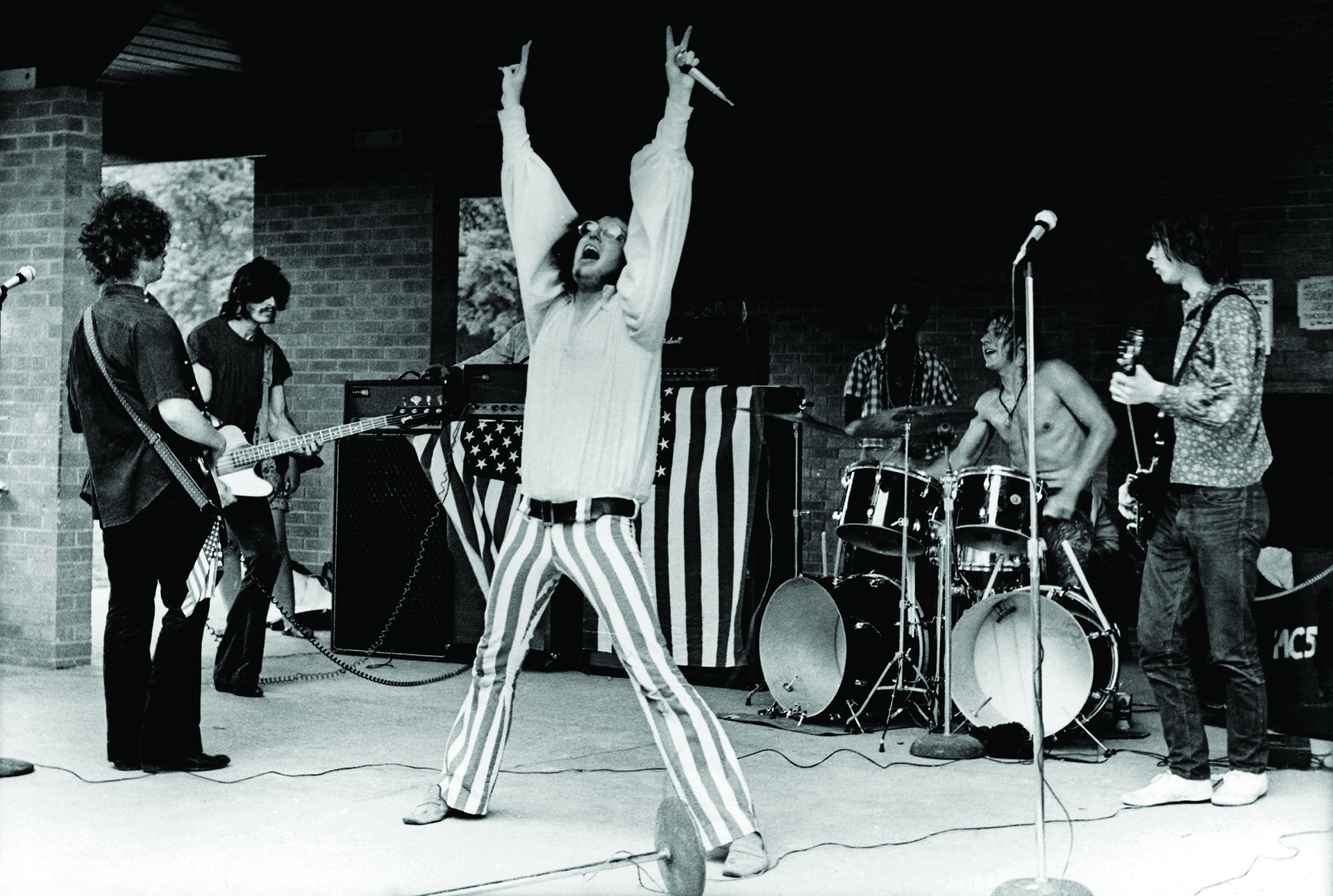
MC5 made their mark both musically and politically. One significant show included an ill-fated performance outside the Democratic party’s violence-marred national convention during 1968 in Chicago. They became the musical mouthpiece for the Sinclair-led White Panther Party, an adjunct to the Black Panthers, whose 10-point manifesto advocated, among other things, “total assault on the culture by any means necessary, including rock and roll, dope and fucking in the streets.”
But the group imploded at the end of 1972, plowed under by pressures both external (police, record companies) and internal (drugs, mental health, acrimony).“I lost my brothers,” Kramer recalled. “We went our separate ways, like [the band] never happened. Denial on a large scale.” He killed that pain with some music but also drugs, eventually dealing and landing in the FMC Lexington Prison in Kentucky, in 1975.
“I lost my brothers. We went our separate ways, like [the band] never happened. Denial on a large scale.”
— Wayne Kramer
The tide changed there. In jail he met jazz trumpeter Red Rodney, who played with Charlie Parker and became a “musical father” to Kramer, expanding his vistas and ambitions with what he called “a Berklee School of Music course in writing and arranging.” Upon his release, he felt inspired again. He started a solo career with The Hard Stuff in 1995 and worked with the likes of Bad Religion, Pere Ubu, Mudhoney, Marshall Crenshaw and others. He began scoring film and TV shows as well, started the record label MuscleTone with his wife, Margaret Saadi Kramer, and launched a U.S. wing of British troubadour Billy Bragg’s Jail Guitar Doors music therapy initiative for inmates.
Kramer never let go of the MC5, either. During 2004 he, Thompson and Davis toured as DKT/MC5 with a corps of guest musicians, Was among them. And in 2018, on the heels of his memoir The Hard Stuff (and a bout with saliva gland cancer), Kramer formed MC50, touring with Thayil and fellow Soundgarden alumnus Matt Cameron, Fugazi’s Brendan Canty, Faith No More’s Billy Gould and others.
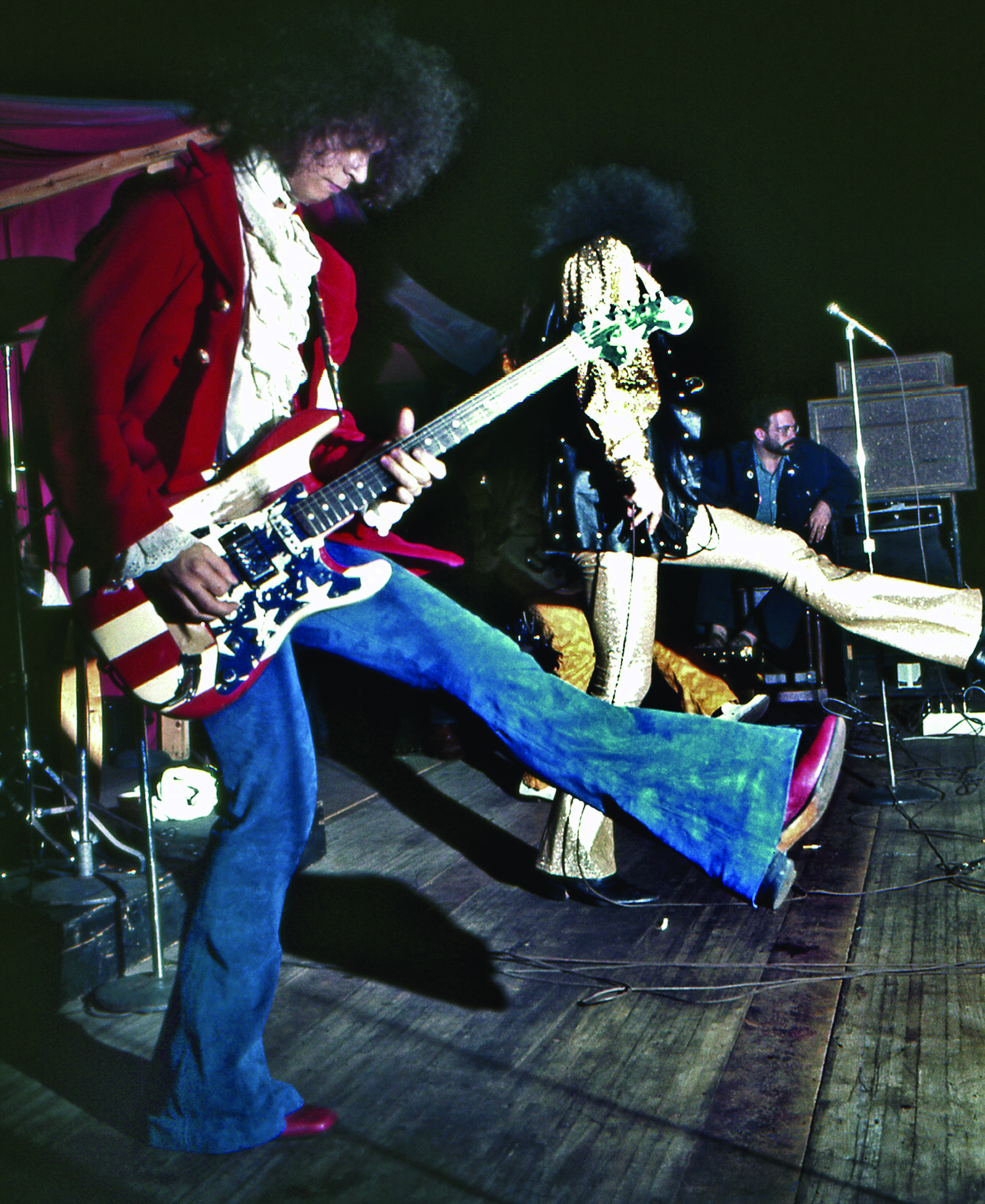
“This is very much a continuation,” he explained at the time. “These guys have carried the message of the MC5 all the years, the message of self-determination and self-efficacy and all things are possible if you put in the work. They all live by that message and they’re playing their asses off. In a lot of ways it’s the realization of the spark that happened 50 years ago at the Grande Ballroom in Detroit, to have a band that produces these high-energy rock shows that completely blow people’s minds, like it’s come to fruition.”
The MC50 troupe did record a new version of “Kick Out the Jams” that’s a bonus on Heavy Lifting, and Kramer did not rule out the possibility of creating new music under the MC5 moniker. But the real impetus came during 2020, from the dual punch of the pandemic and more than three years of the Donald Trump presidency, which was anathema to everything MC5 stood for.
“I went into a real pit of despair,” Kramer acknowledged during the spring of 2022, “and fortunately I have a wonderful therapist who told me, ‘Basta, Wayne! Basta! Get up! Go do something creative. Now, today!’ So I called up [Brooks] and said, ‘Hey, you want to try to write some songs?’ and we wrote a couple, and it was fun and it sounded pretty good and we wrote a few more, and they were sounding better and better, and the whole thing kind of snowballed on its own.”
“I went into a real pit of despair. Fortunately I have a wonderful therapist who told me, ‘Basta, Wayne! Basta! Get up! Go do something creative. Now, today!’"
— Wayne Kramer
Kramer had also been working with Alice Cooper on his Breadcrumbs EP and Detroit Stories album, produced by Ezrin, with whom he shared his own new music. “Everybody was saying, ‘Boy, this could be an MC5 record,’” Kramer recalled. “The more I thought about it… We were in such a dangerous time for our country, I thought, I’m gonna have to pull out all the stops and use the most powerful tools that I have at my disposal. And the MC5 always represented action and commitment and principle, and I think we’re gonna need all of that and more if our democracy is going to survive.”
Ezrin says Kramer first approached him about a film and album project that was also called Heavy Lifting, which the producer describes as “this very elaborate story about some criminals and about a heist and sticking it to the man and so on.” The larger concept seemed like a big lift, but the music… not so much.
“I thought this could be an MC5 project. Forget about the movie — what I would be more interested in would be creating a new MC5 album,” Ezrin says. “And it took [Kramer] really no time at all to come to the right conclusion, which was, Yes, of course what we need is an MC5 album, and of course that’s what we need today in this world, in this America we live in today. We need that voice.”
Some may have raised eyebrows about using the band name again (MC50 was its own kind of sidestep), but Kramer explained that “the MC5 never had a band agreement, so we all held the trademark. If the estate of Michael Davis wants to make an MC5 record, they’re well within their rights to do that.” But Kramer also sought to differentiate what he was doing by doing it under the banner of “We are all MC5,” a campaign that expanded the parameters of what was going on.
“My feeling was MC5 wasn’t five individuals,” Ezrin explains. “MC5 was a state of consciousness, a state of mind and, in a way, a political position. So what I said to Wayne was, ‘Listen, we are all MC5. We all come from that place... So in that sense anybody who wants to join and anybody who wants to take up the mantle here for not just musical reasons but also philosophical reasons, those people would be more than welcome.
“My feeling was MC5 wasn’t five individuals. MC5 was a state of consciousness, a state of mind and, in a way, a political position."
— Bob Ezrin
“It was easy for me to say — I’m not an original member of the band. But looking at it as a fan, my feeling was that anybody who wanted to line up behind this banner was MC5. And that’s what ended up happening.”
It’s a position Kramer was comfortable with.“If you look at what the artist’s role in social change could be, it’s to carry a message,” he said in 2022. “What the MC5’s done since inception is to carry a message of self-efficacy, of taking action. We’re not handing out the jams or passing out the jams — we’re kicking out the motherfucking jams! This is about action — get up off the couch, go do something. If we don’t step up and make sure that we barricade our rights, then all the things we all love about living in America are gonna go away.”
Brooks met Kramer during the spring of 2019 at a Jeff Buckley tribute event in his home base of Oakland, California, and they became fast friends, bonding over their shared cancer and child-raising experiences. They began writing together during 2020, for the initial Heavy Lifting film concept, and Brooks well remembers getting the call. “Wayne said, ‘Hey, Brad, we’re making an MC5 record. You’re the singer of MC5,’” he recalls. “And I’m like, ‘Hold on bro…’”
As Brooks explains, the songs he and Kramer wrote were focused on current topics. “It’s not a retro record,” he says. “It was written about 2021, about the rise of Trump, George Floyd, the [January 6] insurrection, about the homeless situation after COVID. It had to be about now; [MC5] was always about now. They were all very observant cats about the times they were in. I was writing honestly about Oakland, but it does translate to Detroit and everywhere else, and to the state of the world.
“I felt a responsibility to honor the [MC5] name, and honor those guys and their commitment to the music and their commitment to the times.”
As for the musical approach, Brooks says Kramer “wanted to see what would be a more modern version of High Time... I was always talking to him about the Yardbirds’ Roger the Engineer, and Parliament-Funkadelic. ‘Change No Change’ we thought had a [Marvin Gaye] ‘Trouble Man’ vibe to it. That song is interesting because it’s pretty much the demo Wayne made. I feel like it captured the feeling of what I was seeing, and it’s still there.”
“I felt a responsibility to honor the [MC5] name, and honor those guys and their commitment to the music and their commitment to the times.”
— Brad Brooks
For his part Ezrin, along with Kramer, was after “that combination of funk, punk and power that was Detroit,” and of course part of the MC5’s makeup. Demos were exchanged, along with exacting suggestions and tweaks to tighten arrangements and refine lyrics. Tracking sessions with Kramer, Was and Paul McCartney’s drummer, Abe Laboriel Jr., took less than a week during November 2021 at Waystation studio in Coldwater Canyon. Studio owner and engineer Dave Way says the recording was “one of the best sessions of my 35-year career. Everybody was happy to be there and brought their very best. And they’re all badasses.”
“Having [Was and Laboriel] and Wayne on the floor meant there were fireworks from the first note,” recalls Ezrin, who co-wrote the Heavy Lifting tracks “Blind Eye” and “Barbarians at the Gate.” “They spurred each other on. They inspired each other. We had the demos so we knew the songs. We weren’t forced to work out the shape of the material. They developed and perfected their parts fairly quickly, together. They just got each other, and I pushed, like I do, to keep the energy level up and keep it alive.”

Was remembers that “there was never any pretense of, ‘Now you’re the bass player in the MC5.’ It was, ‘We’re making a record that’s meant to shine a light on the legacy and keep the ethos alive.” In doing that, he notes that, “I did think a lot about Michael Davis” and Davis’s isolated bass tracks that Kramer had provided for Was to study during the MC50 dates.
“The thing that really blew my mind was how much R&B there was in his bass playing,” Was says. “He listened very carefully to [Motown funk brother] James Jamerson, I think. There’s a lot of nuanced groove that gets washed away in the sea of guitar when you hear the mixes. I suspect that’s one reason why Wayne called me; I do think that particular way of blending R&B and rock and roll is a Detroit thing. I think he knew that’s where I come from.”
Both Ezrin and Brooks say Kramer’s approach was characteristically straightforward and clean. Most of the album was played with his signature Fender Stratocaster, although Ezrin notes that Kramer was “a quintessential guitar guy. He had a lot of other axes to choose from when we were looking for different sounds and stuff.” But, Brooks adds with a laugh, “Wayne’s not a pedal guy, right? He’ll use effects here and there, but his studio is filled with pedals that he’s never used.”
"There was never any pretense of, ‘Now you’re the bass player in the MC5.’ It was, ‘We’re making a record that’s meant to shine a light on the legacy and keep the ethos alive.' ”
— Don Was
That doesn’t mean Kramer’s playing is simple by any measure, Ezrin cautions. “Wayne is such a versatile and interestingly schooled guitar player,” he says. “He had a really great sense of rhythm. He channels his inner Motown star and has a very R&B approach to things, rhythmically, so he’s very funky. And then once he studied jazz, he became not only funky and punky but he also had some harmonically sophisticated constructs with the songs on the record, moments in some of the songs that are on a high level, from my point of view.
“He’s very good at coming up with riffs, too. Riffs are not very easy, especially the simple ones. They’re very much like a motif is in classical music. But he’s a great riff man. When you listen to ‘Boys Play With Matches,’ from the new album, that guitar riff — that’s fantastic!”

Soundgarden’s Thayil — who calls MC5 “probably my favorite band” — gained his own appreciation for Kramer’s method while playing alongside the guitarist in MC50. “It’s a little bit more involved than I thought,” acknowledges Thayil, whose playing is featured on an alternate mix of “The Edge of a Switchblade.” “Just offhand, from listening to the albums, the songs all seem pretty simple, like, three-chord songs that are just pounding their way repetitively. But the arrangements are dynamic, so there are little rhythmic emphases here and there to kind of break it up. When you’re young, you don’t understand that. It takes a while to recognize and learn nuance and dynamics, and there’s a lot of that in [Wayne’s] playing, in MC5 and after.”
Once Heavy Lifting’s basic tracks were together, Kramer and Ezrin began reaching out to guests for overdubs. “We would discuss it, have a conversation,” Ezrin remembers. “In most cases they were friends of Wayne’s that we were reaching out to. They would discuss what it was Wayne and I had agreed we were missing and that we were looking for. Wayne would give them their marching orders. They would send me samples and examples of what it was they were about to do and we’d make adjustments. And sometimes it would be perfect and amazing.”
"Wayne was such an encouraging person. He’s a positive, feisty dude. He was kind of like, ‘Do you! Do what you feel. Don’t think.’"
— Vernon Reid
Living Colour’s Vernon Reid met Kramer prior to the pandemic, when both were instructors at one of Morello’s guitar workshops. Reid was surprised and happy to be asked to play on the track “Can’t Be Found,” one of two that also feature MC5 drummer Dennis Thompson. “The idea of an MC5 record... you can’t take something like that lightly,” Reid says.“I didn’t. But Wayne was such an encouraging person. He’s a positive, feisty dude. He was kind of like, ‘Do you! Do what you feel. Don’t think.’ So I listened to it and tried to absorb the tune and get a vibe for it, and it worked out.”
Morello, meanwhile, was one of the first guests involved in the project. He co-wrote Heavy Lifting’s title track and plays on it as well. “When I found out the song was co-written by him, it was a foregone conclusion he was gonna play on it,” Ezrin says. “And of course I got him to sing on it, too, on the chorus.” Slash was similarly “an easy ask” for “The Edge of the Switchblade.” “It was exactly the right song for him to be part of,” Ezrin says. “I didn’t have to say anything; what I wanted was pure Slash, just ‘Go be yourself. Play like you play musically. It’s a simple progression.’ It just called for that kind of Slash sensibility.

DuVall, another veteran of the DKT/MC5 shows, says he was “honored” to be vocalizing Kramer’s story about the band and channeled his pre-adolescent fandom into his performance. “I was just going for that thing I feel like Rob Tyner and the entire band were able to embody, which is that bridge between soul and rock and roll and, of course, experimental music, free jazz, high-energy kind of ecstatic music. I still feel like that soul/rock and roll junction is firmly there, and so I tried to bring that, which is natural for me to do anyway.”
Ezrin feels it’s also important that Thompson, who recorded his drum parts back in Michigan, contributed to Heavy Lifting. “He was one of the most important drummers of the era and obviously an original member, an OG — the only one left standing beside Wayne at that point,” the producer says. “So it was very important that we got both of them on the record to the extent that we could, and I think Dennis did a really good job.”
Fans got their first taste of Heavy Lifting when Kramer released the title track in conjunction with the 2022 spring tour of the Brooks-fronted MC5 lineup, which Kramer called “the best band yet.” The group was also playing “The American Ruse,” another politically pointed song that did not make the final track list. “There were other songs that were part of the other [movie] project,” Ezrin notes. “But from the time we were in the studio until the end, it was the same group of songs.”
"Wayne sent me a note and just said, ‘This is great. I love it,’ and I feel really good about that."
— Brad Brooks
Heavy Lifting comes out amidst a spate of MC5 activity this fall. In addition to the long overdue Rock Hall honor, a new book, MC5: An Oral Biography of Rock’s Most Revolutionary Band — comprised of the late Ben Edmonds’ original interviews and finished by Detroit-born writers Brad Tolinski and Jaan Uhelszki — has been published. And, fittingly, the group will be honored in its hometown of Lincoln Park. Kramer’s absence will be felt, as will Sinclair’s, Thompson’s and the other band members — but the Heavy Lifting team is confident that the album will stand as a fitting finale and one last set of vital jams kicked out under the MC5 banner.
“I’m gratified that when we finished the album, Wayne sent me a note and just said, ‘This is great. I love it,’ and I feel really good about that,” Brooks says. “We didn’t finish with any regrets. He loved every song, every mix, and all of us were excited about it. That he was happy, satisfied, excited and fulfilled by the process and by the record itself — that’s great. I feel good that I could play some role in helping him to realize one of his dreams.”
Get The Pick Newsletter
All the latest guitar news, interviews, lessons, reviews, deals and more, direct to your inbox!
Gary Graff is an award-winning Detroit-based music journalist and author who writes for a variety of print, online and broadcast outlets. He has written and collaborated on books about Alice Cooper, Neil Young, Bob Seger, Bruce Springsteen and Rock 'n' Roll Myths. He's also the founding editor of the award-winning MusicHound Essential Album Guide series and of the new 501 Essential Albums series. Graff is also a co-founder and co-producer of the annual Detroit Music Awards.
"Old-school guitar players can play beautiful solos. But sometimes they’re not so innovative with the actual sound.” Steven Wilson redefines the modern guitar solo on 'The Overview' by putting tone first
“I played it for Paul Stanley when we were touring with Kiss. He had a look on his face, like 'What the hell is this!?’” Alex Lifeson tells how Rush’s early failure pushed them for their breakthrough success, 2112











